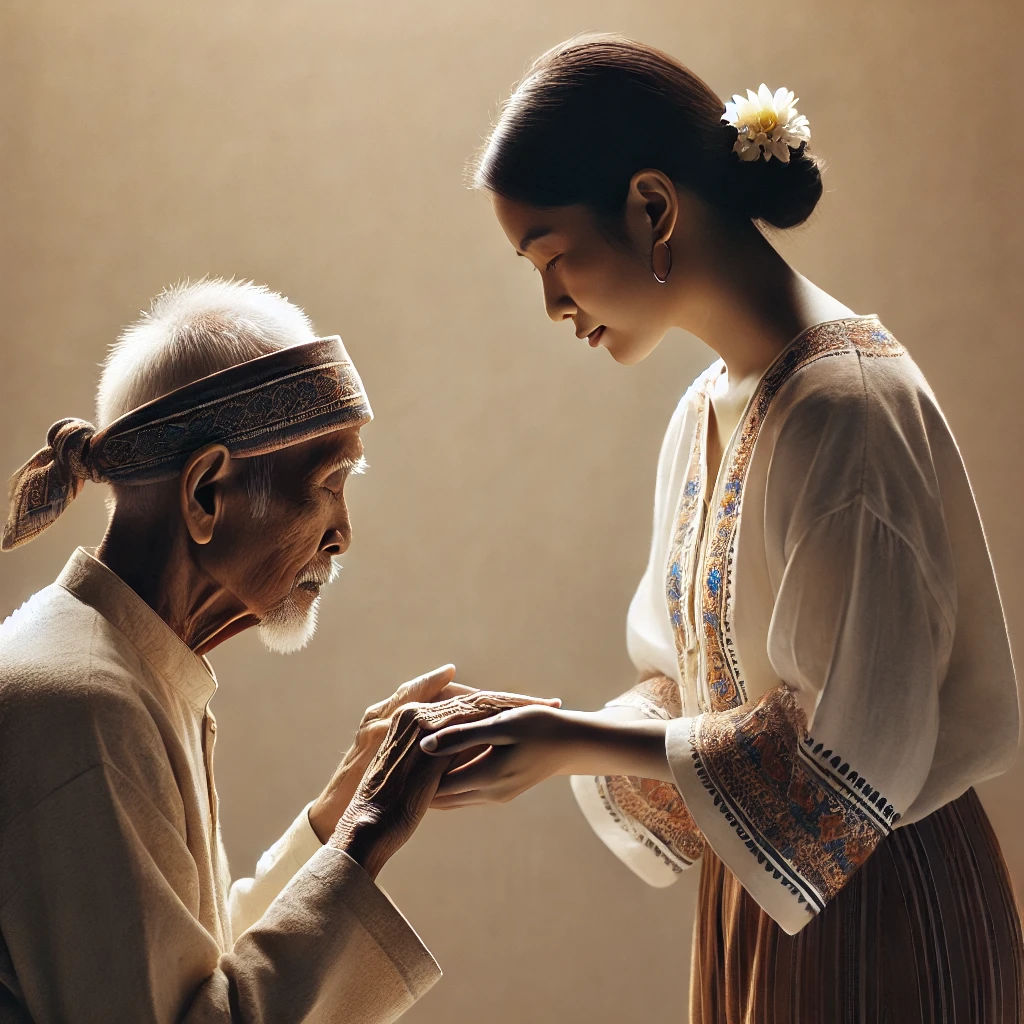Pakikipagkapwa-Tao, a core value deeply ingrained in Filipino culture, signifies treating others as fellow human beings. This principle goes beyond mere interaction, encompassing respect, empathy, and solidarity within the community. In a country rich with diverse traditions and values, Pakikipagkapwa-Tao stands out as a defining characteristic of Filipino social behavior. This blog explores the origins, significance, and modern-day applications of this value, highlighting its impact on Filipino society.
Historical Background
Pre-Colonial Era
Before the arrival of colonizers, early Filipinos lived in small, close-knit communities called barangays. These communities thrived on mutual cooperation and collective responsibility. The concept of Pakikipagkapwa-Tao was evident in their daily lives as communal decision-making and mutual aid were integral to their survival.
Colonial Influences
The Spanish colonization introduced new social structures and values, yet the essence of Pakikipagkapwa-Tao persisted. The Filipinos’ ability to adapt and incorporate aspects of colonial culture while maintaining their intrinsic values is a testament to the resilience and strength of Pakikipagkapwa-Tao.
Core Elements of Pakikipagkapwa-Tao
Hiya (Shame)
Hiya, or a sense of shame, plays a critical role in fostering harmonious relationships. It acts as a social regulator, ensuring individuals act with propriety and consideration towards others to avoid embarrassment and maintain social harmony.
Utang na Loob (Debt of Gratitude)
Utang na Loob is a moral obligation to repay someone who has provided a favor or assistance. This reciprocal value strengthens social bonds and fosters a sense of interconnectedness within the community.
Pakikisama (Group Loyalty and Camaraderie)
Pakikisama emphasizes the importance of group harmony and cooperation. Filipinos often prioritize group welfare over individual desires, promoting unity and collective well-being.
Pakikipagkapwa-Tao in Daily Life
Family Dynamics
In Filipino families, Pakikipagkapwa-Tao manifests through close-knit relationships and mutual support. Respect for elders, communal living arrangements, and collective decision-making are common practices that highlight this value.
Community Engagement
Filipinos are known for their strong community spirit. Bayanihan, a traditional form of communal unity, exemplifies Pakikipagkapwa-Tao. This practice involves community members coming together to help a family move their house, symbolizing cooperation and collective effort.
Workplace Environment
In professional settings, Pakikipagkapwa-Tao fosters a collaborative and supportive work environment. Filipino employees often build strong relationships with colleagues, promoting teamwork and mutual assistance.
Cultural Expressions of Pakikipagkapwa-Tao
Festivals and Celebrations
Filipino festivals, such as Sinulog and Ati-Atihan, reflect Pakikipagkapwa-Tao through communal participation and shared joy. These events bring communities together, reinforcing social bonds and collective identity.
Traditional Arts and Crafts
Pakikipagkapwa-Tao is also evident in traditional arts and crafts. Indigenous communities often work collaboratively to create intricate handicrafts, showcasing their shared skills and cultural heritage.
Religious Practices
Religion plays a significant role in Filipino life, and Pakikipagkapwa-Tao is integral to religious practices. Church activities and religious gatherings provide opportunities for communal interaction and mutual support.
Contemporary Relevance of Pakikipagkapwa-Tao
Modern Filipino Society
In contemporary Filipino society, Pakikipagkapwa-Tao continues to be relevant. Despite urbanization and modernization, the value of treating others with respect and empathy remains strong. Filipinos adapt traditional values to modern contexts, ensuring that Pakikipagkapwa-Tao endures.
Overseas Filipino Workers (OFWs)
Pakikipagkapwa-Tao extends beyond national borders through Overseas Filipino Workers (OFWs). These workers often form tight-knit communities abroad, supporting each other and fostering a sense of belonging in foreign lands.
Statistical Overview of Pakikipagkapwa-Tao
To better understand the prevalence and impact of Pakikipagkapwa-Tao in Filipino society, let’s examine some statistical data up to 2017.
| Aspect | Percentage/Number | Source |
|---|---|---|
| Population living in barangays (2017) | 94% | Philippine Statistics Authority |
| Households practicing Bayanihan | 80% | National Statistics Office |
| OFWs forming community groups abroad | 90% | Department of Foreign Affairs |
Impact on Filipino Society
Social Cohesion
Pakikipagkapwa-Tao contributes significantly to social cohesion in the Philippines. It encourages individuals to act in ways that promote collective welfare, reducing social conflicts and fostering unity.
Economic Cooperation
The spirit of Pakikipagkapwa-Tao extends to economic activities. Small businesses often rely on mutual support networks, and community-based enterprises thrive on the principles of cooperation and shared responsibility.
Political Engagement
Pakikipagkapwa-Tao influences political behavior as well. Filipinos often engage in collective action to address community issues, demonstrating the value’s importance in civic life.
Challenges and Preservation
Modern Challenges
While Pakikipagkapwa-Tao remains a vital part of Filipino culture, it faces challenges in modern society. Urbanization, globalization, and changing lifestyles can sometimes weaken traditional values. However, the resilience of Pakikipagkapwa-Tao ensures its continued relevance.
Efforts to Preserve Pakikipagkapwa-Tao
Various initiatives aim to preserve and promote Pakikipagkapwa-Tao. Educational programs, cultural organizations, and community projects work to instill this value in younger generations and adapt it to contemporary contexts.
Conclusion
Pakikipagkapwa-Tao, the value of treating others as fellow human beings, is a cornerstone of Filipino culture. It manifests in family dynamics, community engagement, workplace environments, and cultural expressions. Despite modern challenges, Pakikipagkapwa-Tao remains a powerful force for social cohesion, economic cooperation, and political engagement in the Philippines. Understanding and preserving this value is crucial for maintaining the rich cultural heritage of the Filipino people.
Disclaimer: This article is based on information available up to 2017. Please report any inaccuracies so we can correct them promptly.




